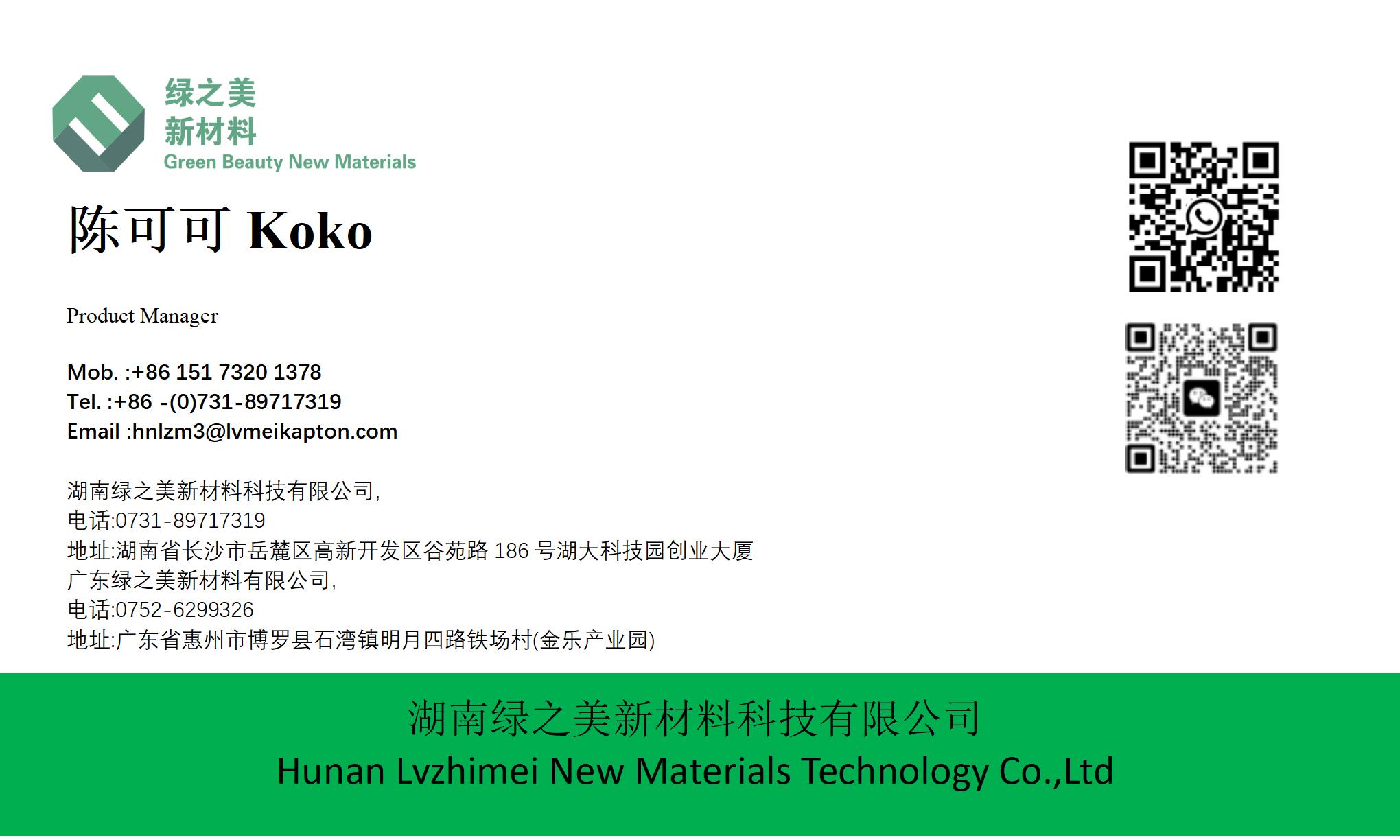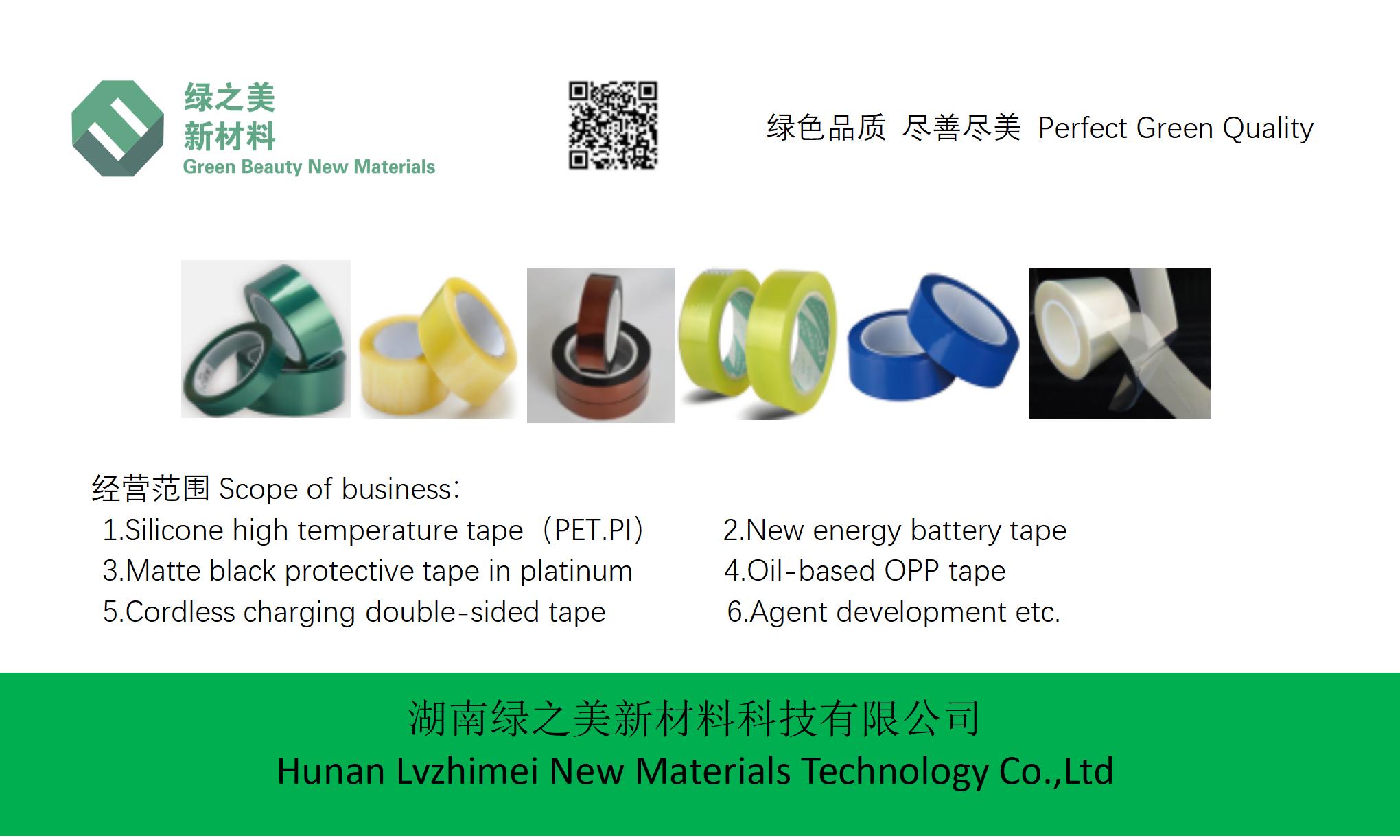



Key Features of PI Material High Temperature Resistant 300°C Tape https://www.lvmeikapton.com
Key Features of PI Material High Temperature Resistant 300°C Tape https://www.lvmeikapton.com
1. Overview of PI Material
Chemical Properties & High-Temperature Resistance Mechanism Polyimide (PI) is a high-performance thermosetting polymer characterized by its rigid aromatic heterocyclic structure. The main chain consists of alternating imide rings and aromatic groups, which provide exceptional thermal stability, mechanical strength, and chemical resistance. The inherent stability of the imide bond (C-N-C=O) enables PI to withstand temperatures up to 300°C for prolonged periods without significant degradation. This unique molecular structure also offers:
●
High Glass Transition Temperature (Tg): Typically around 350°C, ensuring dimensional stability at extreme temperatures.
●
Low Thermal Expansion Coefficient: Minimizing形变during thermal cycling.
●
Excellent Radiation Resistance: Suitable for aerospace and nuclear applications.
Table 1: Key PI Material Properties
Property | Value/Description |
Tensile Strength | 200 MPa (at room temp) |
Long-term Use Temp. | -240°C to +300°C |
Thermal Conductivity | 0.25 W/(m·K) (low heat transfer) |
Dielectric Strength | 200 kV/mm (excellent insulation) |
2. Core Features of PI 300°C Tape
2.1 High-Temperature Performance PI tape maintains superior mechanical properties at 300°C, with:
●
Tensile Strength Retention: ≥80% of room temp strength.
●
Low Shrinkage Rate: ≤1% at 300°C (vs. 5-10% for PET tape).
●
Volatiles Emission: Minimal outgassing in high vacuum environments.
2.2 Chemical Resistance Resistant to acids, solvents, oils, and fuels, making it suitable for harsh industrial conditions. Key advantages:
●
Corrosion Protection: No degradation by most chemicals except浓硫酸.
●
Self-Lubricity: Reduced friction and wear in dynamic applications.
2.3 Electrical Insulation PI exhibits exceptional electrical properties:
●
Dielectric Constant: 3.4 (stable across wide freq. range).
●
Volume Resistivity: >10¹⁶ Ω·cm.
●
Arc Resistance: High tracking index (CTI >600 V).
3. Real-World Applications
3.1 PCB Wave Soldering Protection During wave soldering (peak temp: 260-280°C), PI tape shields sensitive components from molten solder while maintaining adhesion and dimensional stability. Its zero residue post-removal feature prevents contamination.
3.2 Coil Insulation in Transformers In high-voltage transformers, PI tape’s 300°C continuous operation capability ensures long-term reliability. Its low thermal expansion matches metal core materials, preventing insulation cracking.
3.3 Lithium Battery Manufacturing PI tape is used for electrode insulation in Li-ion cells due to its:
●
High-Temp Creep Resistance: Avoiding insulation failure during battery cycling.
●
Thin Profiles: Enabling higher energy density designs.
4. Comparison with PET and Other Materials
Table 2: Performance Comparison
Material | Max Temp. | Shrinkage@300°C | Chemical Resistance | Cost |
PI | 300°C | ≤1% | Excellent | High |
PET | 150°C | 5-10% | Fair | Low |
Kapton* | 260°C | 2-3% | Good | Medium |
PTFE | 260°C | Low | Best | Very High |
*Note: Kapton is a registered PI brand by DuPont.
Key Takeaways:
●
PI vs. PET: PI excels in high-temp environments (e.g., automotive engine compartments), while PET suits lower-temp applications (e.g., consumer electronics).
●
PI vs. PTFE: PI offers better mechanical strength and easier processing, but PTFE has superior self-lubricity.
5. Selection Considerations
5.1 Thickness & Adhesion
●
Thin Films (25-50μm): Ideal for precision electronics (e.g., flexible circuits).
●
Medium Thickness (75-125μm): General-purpose insulation (PCB protection).
●
High Adhesion Variants: For secure bonding in high-vibration environments.
5.2 Process Compatibility
●
Wave Soldering: Choose tapes with fast peel-off properties to avoid residue.
●
Laser Cutting: Opt for PI with UV indicators for precise machining.
●
Thermal Cycling: Verify CTE匹配 with substrate materials.
6. Summary
PI 300°C tape’s combination of thermal stability, chemical inertness, and electrical insulation makes it indispensable in high-end electronics, aerospace, and energy sectors. As technology trends toward miniaturization and higher operating temperatures, PI’s unique properties ensure reliability where traditional materials fail.











